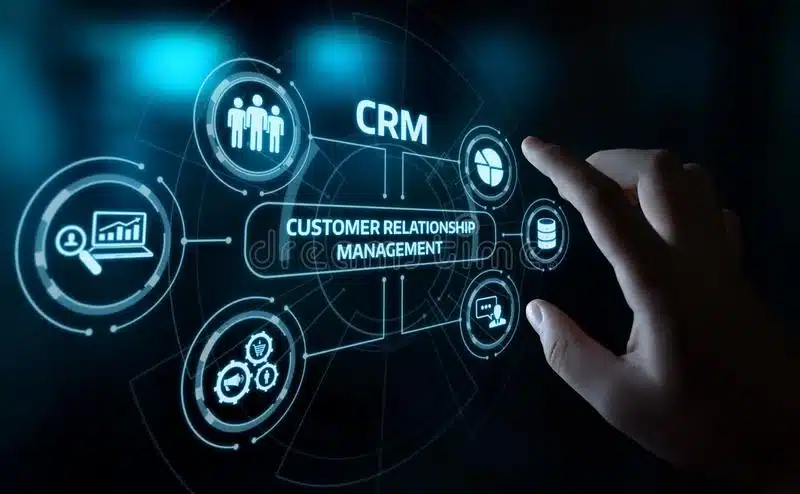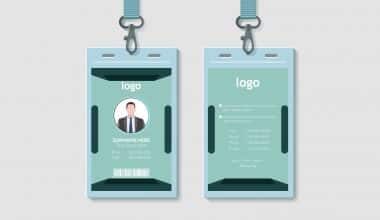You might expect to find the following components in typical CRM solutions: a database of customers, data management tools for dealing with various types of customer data, workflow automation capabilities for process design and management, analytics, dashboards, and other features like forecasting and intelligent scoring. Companies can interact with clients in a variety of ways, including through their websites, emails, phone calls, chatbots, and more, by making use of such tools. CRM solutions are the de facto standard for customer-facing businesses because it streamlines and automates so many processes, including those involved in managing sales and marketing funnels, reporting, forecasting, analytics, etc. Also, advanced CRM solutions let customer service teams view customer profiles, expedite request management, automate support operations, and improve processes for customer care excellence. This post will go over some of the most popular CRM solutions, including some that are cloud-based, software, and ideal for a small business.
What is CRM Software?
The term “customer relationship management” (CRM) refers to software that helps businesses organize their interactions with current and potential clients. The mission is straightforward: to strengthen professional ties. A customer relationship management system can help a business maintain contact with its customers, streamline operations, and boost profits.
The term “customer relationship management” (CRM) is typically used to refer to customer relationship management (CRM) solutions or platforms, which is a tool used for managing contacts, sales, and other business operations.
Whether they are customers, service users, colleagues, or suppliers, CRM solutions allow your business to maintain a consistent focus on each individual relationship throughout the entire customer lifecycle, from initial contact to post-sale support and beyond.
Furthermore, the sales and marketing departments can monitor the customer’s whole interaction history with your company thanks to the CRM system. This has the potential to improve the customer journey and experience by adjusting each point of contact with the client.
What are the Common Features of CRM Software?
The features of modern customer relationship management (CRM) solutions extend far beyond the simple maintenance of a digital address book. With the correct tools, customer relationship management (CRM) software may help you increase sales by keeping tabs on customers at every stage of the buying process. Through sales force automation, it can save you a ton of money and time as well. Here are some features that good CRM software solutions should have.
#1. Automated Workflow
Automating routine tasks with customer relationship management software. To boost your efficiency, find software that has sales force automation and allows you to create custom rules.
Using rules, you may program your CRM to operate in a predetermined way in response to conditions like these:
- The CRM system will automatically notify managers and executives of sales reps’ accomplishments as they are completed.
- After a specified amount of time, say 48 hours or two business days, the CRM software will automatically send a follow-up message to a lead, prospect, or opportunity who hasn’t responded to your message or proposal
- The CRM system is programmed to respond with a standard response whenever a sales agent receives a message.
- The CRM system keeps track of the time a sales professional spends on the phone and the messages they deliver to clients.
In addition, the time and effort spent on routine sales operations like order processing, order tracking, and inventory control can be reduced by using workflow automation capabilities.
#2. Modification
Since no two companies are identical, it is important that your CRM solutions be flexible enough to meet your specific requirements. Some CRM solutions enable you to tailor your own set of features, while others let you tweak the fundamentals such as the fields in your contacts, the information displayed in your dashboard, and the reports you generate. To further extend the functionality of your program, you may also install various plugins, themes, and extensions.
Furthermore, many CRM software vendors supply extra choices via APIs if you need them to truly personalize the software to your business. This opens the door for developers to make extensive changes to the software based on your precise specifications. Because of the API, you may also incorporate the program with other business solutions already in use at your firm.
#3. Integration with Outside Parties
You may save a lot of time and money by integrating your customer relationship management software with the tools you already use. Most customer relationship management (CRM) solutions provide interfaces with other systems; the trick is finding one that works well with your current setup. Salesforce, a prominent CRM platform, has its own marketplace called AppExchange where customers can easily integrate with other applications like QuickBooks accounting, MailChimp email marketing, and DocuSign electronic signatures, to name a few.
Some examples of how the correct third-party integrations can simplify your life are as follows:
- Integrating your point-of-sale and accounting software into a seamless whole will save you countless hours of tedious data entry.
- You can use email applications like Outlook and Gmail together with your CRM of choice to save time
- Use a cloud-based backup and synchronization service like Dropbox or Box.com to save and access your files from anywhere.
- You can save time by having your email marketing and CRM software work together to develop email lists and run email marketing campaigns automatically.
In addition, some integrations could necessitate assistance from IT staff, depending on the software in question.
#4. Lead management
You can track your leads’ progress through the sales cycle and learn more about them thanks to lead management. You can improve the likelihood of closing deals by assigning just the best leads to certain team members based on their scores in the lead management process.
Also, a CRM may hold on to a lead that has long since died for weeks or months. A good sales manager monitors leads and reassigns inactive or dormant leads to other team members so they can be reactivated.
#5. Customer Assistance
Using CRM solutions to their full potential can aid in the recruitment and retention of customers. The following features will help your sales staff and customer service agents provide the best possible service to your clients:
- Provides a full view of the customer’s history, including all interactions, to help you better serve them.
- All correspondence is addressed to the consumer by name.
- Identifies each account, client, and support inquiry with a distinct identifier.
- Allows for the use of ready-made email and phone scripts that address frequently asked questions.
- Maintains a record of every interaction, from the initial point of contact to the final sale and beyond.
- Notifies customers instantly that their questions and messages have been received.
- Records everything that happens for later reference and so that all employees are on the same page regarding issues, online visits, and purchase histories.
Some CRM platforms streamline this process by including additional tools like Desk.com’s help desk, SurveyMonkey’s customer surveys, and RingCentral’s professional phone service.
What Are the 4 Types of CRM?
Customer relationship management (CRM) encompasses a wide range of CS, marketing, and sales technologies, therefore these advantages apply generally. There are three broad categories into which the many characteristics and foci of CRM solutions and approaches can be sorted.
#1. Analytical CRM Solutions
The fundamental goal of analytical CRM solutions is to aid in the analysis of existing customer data in order to draw useful conclusions. The availability of digital resources has simplified the gathering of massive data sets. However, data analysis is a challenging task that must be accomplished before that data can be put to use for your business. In fact, it is estimated that more than half of all data collected by businesses is never used.
Furthermore, the information you have on your customers is far too valuable to risk being stolen. Using the information at hand, an analytical CRM’s features allow you to spot patterns in your clientele’s actions. You can learn more about the most prevalent issues faced by customers, the actions that lead to successful sales, and the means by which those customers are retained.
#2. Collaborative CRM Solutions
Collaboration CRM solutions prioritize removing organizational barriers. It’s not uncommon for there to be a palpable lack of communication between the company’s marketing, sales, and customer service teams. Larger businesses often have multiple such divisions because of the need to specialize in different regions, channels, goods, or personnel. However, real-time information sharing across the entire business is essential for providing a consistent customer experience across the customer lifecycle.
With collaborative CRM solutions, teams across all channels and departments can access the same, accurate customer information in real-time. Agents in a call center have access to the most up-to-date information regarding client interactions that have taken place via email or message channels, in addition to the information gathered by marketing and sales teams from prospective customers.
With collaborative CRM, all interactions are seen as contributions to a continuous dialogue between the company and the client. Customers like the seamless transition across departments and channels, since it prevents them from having to repeat themselves repeatedly. Whenever a customer interacts with a company’s staff, that staff member will have instantaneous access to the customer’s whole interaction history.
#3. Operational CRM Solutions
When it comes to managing interactions with customers, operational CRM solutions are invaluable. They give resources that make it easier to map out and manage the entire customer journey, even if that path involves a large number of individual interactions. This begins with their initial experiences with your company’s website, continues throughout the lead management process as they go through the sales pipeline, and persists in their activities after they have become a customer.
Furthermore, the majority of functional CRM solutions provide automation capabilities. Automation in the areas of marketing, sales, and service relieves your staff of some responsibilities. Since they’ll have more time, they’ll be able to focus on the more human and imaginative components of their work. It also facilitates the expansion of successful businesses by allowing them to maintain their high standards of service.
#4. All-In-One CRM Solutions
In addition to facilitating customer-facing use cases, all-in-one CRM solutions also let businesses automate administrative processes. To facilitate the end-to-end automation of all business functions, all-in-one CRM solutions offer a wide variety of workflow automation, collaboration, and analytics tools. All of the aforementioned features can be found in a unified CRM system that can be implemented by large businesses to streamline their marketing, sales, customer care, and back-office processes. One-stop shopping for both customer-facing and operational departments, all-in-one CRM software can also be coupled with other solutions and data sources for smooth data-sharing.
Workflow automation features that are as robust as those provided by such solutions make it possible to plan, implement, and improve operational procedures.
The most effective CRM solutions of this kind can also be used to automate business procedures unique to your company’s industry, expanding their usefulness far beyond the realm of traditional customer relationship management. Workflow-heavy businesses like financial services, manufacturing, and telecommunications can benefit greatly from all-in-one CRM solutions because of the ease with which they enforce and automate established procedures.
Small Business CRM Solutions
You’ve graduated from the infancy of your business, at which point you can focus on expanding your clientele. You may have moved on from using a spreadsheet to keep track of your contacts and are now utilizing CRM software, but will these solutions hold up if you double the number of leads you’re generating?
In order to save you time and effort, I have investigated and evaluated the best CRM solutions for a small business like yours. From my analysis and testing, I have identified the best CRM solutions for you to choose as you look to replace your current system or build brand-new, cutting-edge software.
#1. Vtiger
When it comes to customer relationship management (CRM) solutions for a small business, Vtiger is without a peer. It integrates inventory, marketing, help desk, project management, and paperwork to help you keep track of your relationships and deals.
You might assume that the interface is disorganized due to the need to include so much information. However, Vtiger maintains order by designating a separate panel for each major feature group and providing straightforward navigation across the top. If you’re on one screen and need to go to another, like inventory or sales pipeline, use the hamburger menu in the top left corner of your screen. In addition, a large menu will appear, allowing you to quickly navigate to the desired location.
Another potential pitfall of all-in-ones is that some of its features will be superior while others will only be adequate. Vtiger excels in this regard, as evidenced by the following:
- The process of adding a new contact is simple and may be completed in the little moments between phone calls and email correspondence. You can access the primary contact page whenever it’s convenient and enter all the necessary information there.
- In order to keep tabs on your deals, the sales screen provides a visible funnel. If you click on a deal, you’ll be taken to the following step and given access to all the associated data.
- In order to further assist your support team, the help desk screen features a live chat window, a history of open cases submitted by customers, and the option to create your own Frequently Asked Questions area.
#2. Flowlu
If you have a team of eight individuals or more, you can get decent power at a reasonable price with Flowlu. Combine sales with projects, finances, teamwork, client portals, and knowledge bases with a sleek user interface and a comprehensive onboarding job list. It’s a comprehensive CRM with a focus on business and project management.
Also, a stream of new notifications will be displayed each time you check in. To get everyone on the same page, you can run a brief poll or make some announcements. The left-hand menu then provides quick access to all of your most-used functions, such as creating new projects, transactions, or contacts with a single click.
All of the tools for managing contacts and closing sales are included. To help you stay on top of your workload and monitor the progress of your team, all tasks are displayed in a list view that can be filtered. Workflow automation that adapts to the sales process’s stages is another feature I like.
In addition, flowlu is an all-in-one solution for managing projects, with features like contact integration, information centralization (supporting both waterfall and Agile approaches), and more.
#3. Zoho
You should think about the long run while making software decisions for your business. Sure, this app meets the needs I have right now, but what about next year when our customer base has grown by a factor of three? Will it help me out without draining my finances as I take on more work?
In this case, Zoho CRM will. The free option works well. The basic package is reasonable. Also, the price remains reasonable even at the highest tier when you consider everything you get in return, including extensive reporting, machine learning, and artificial intelligence.
While the user interface might use some work, Zoho more than makes up for it with its extensive feature set. It has sales, email marketing, and a company activity stream to facilitate better internal communication. Help desk functions, automated lead scoring, and customer self-service portal creation are all supported. In addition, Zoho CRM solutions are also very close to becoming an all-in-one solution for a small business.
Also, you can configure smooth connectivity between Zoho Projects and the CRM dashboard so that you can track your projects and view your tasks directly in the CRM interface. The CRM works with numerous Zoho apps, most of which have free or low-cost premium tiers. As your finances change, you have the flexibility to go higher or lower in plan level.
#4. Capsule
To sum up, a powerful CRM system and a reliable project management program. User satisfaction is prioritized, as it should be in any decent productivity app. It offers an easy-to-navigate UI and a dashboard that prevents overload. This is significant because increasing productivity is a lot like practicing self-control in an all-you-can-eat diner: if you pile too much on your plate, you’ll either get too full (burn out) or have too much food left over (not get everything done).
Also, there are a few different ways to see your projects on the Projects screen. Include all necessary files, assign tasks to the appropriate persons, and more in this convenient location. When you return to the dashboard, you’ll see your tasks neatly listed on the left. On the right, you’ll see a stream of the most recent activity in your team’s tasks, calls, and deals. Also, read CRM Tools For Small Businesses: Free Tools And Application.
After putting in some effort for a few weeks, you can examine the data to see if there are any productivity issues. In addition to the standard sales pipeline data included in nearly all apps in this category, you also get a report like this one. These may reveal who’s taking longer than planned to do tasks and who needs extra help.
In addition, if you need to use additional programs to complete your projects, you can integrate Capsule with Zapier to automatically transfer data across your programs.
Cloud CRM Solution
Customer relationship management (CRM) software is becoming increasingly popular among businesses of all kinds and in all sectors as each year passes. In addition, many businesses now have greater flexibility in their operations by using cloud-based CRM solutions rather than on-premise software, thanks to the widespread use of remote work.
What Is a Cloud CRM Solution?
The vendor hosts the CRM software on their servers, making it available to users wherever with an internet connection. Software as a service (often referred to as SaaS) is another name for this type of program. Until now, this hasn’t been the case because CRM platforms can also be kept in-house. When compared to a cloud CRM solution, the initial investment and maintenance costs of an on-premises CRM are much higher.
How Does It Work?
The provider of a cloud CRM solution owns and manages all necessary hardware and software. The customer relationship management app is run by businesses via their internet connection and laptops.
However, the CRM provider stores and protects the company’s data remotely. In this way, companies can avoid the high initial expenses associated with establishing the kind of infrastructure required to store and secure all of that data.
The servers, networks, security, and hardware required to operate on-premises software are owned and maintained by the company. The initial investment needed to store and organize that much information is substantial. In addition, having a full-time IT staff member responsible for keeping the data center’s software updated is highly recommended.
Cloud vs. On-Premises CRM
With an on-premises CRM system, the company’s own computers and network are used to store and manage customer information. When a CRM is deployed internally, businesses must supply not only the hardware, but also the software, hardware, personnel, and other resources required to keep it operational. The CRM platform will require a substantial initial investment and IT staff to manage it.
In contrast, a cloud-based CRM solution implies that the service provider handles everything necessary to host and run the application. The CRM will be made available to the company via a web-based application or dashboard. By outsourcing the system’s development and hosting, the company saves money and avoids the hassle of managing its own security and software upgrades.
Overview of the Best Cloud Software Solution
#1. Monday.com
Despite its origins in project management, monday.com’s CRM solution has seen considerable success thanks to its intuitive user interface. The drag-and-drop functionality is particularly useful for quickly rearranging data within and across tables to better prioritize leads.
The pricing structure of monday.com could prove problematic for larger teams. Contact monday.com to get a quote for your group if you have more members than the bundles allow for.
Features
- Analytics/ROI tracking
- Project management tools
- Kanban board
- Event-triggered actions
- Referral tracking
#2. Hubspot
Hubspot is one of the most prominent competitors in the CRM market due to the popularity of both its free and paid versions. SaaS tools for marketing, customer care, and content management are included in addition to the sales-focused CRM functionality.
Furthermore, Hubspot has some of the most fundamental CRM functions, such as contact management and lead management, and is tailored to the needs of expanding teams. It also gives KPI tracking tools to help managers monitor their teams’ progress and improve their leadership skills.
Features
- Landing pages/web forms
- Email response control
- Self-service portal
- Sales pipeline management
- Social media integration
#3. Pipedrive
Pipedrive is the go-to cloud-based CRM solution for non-technical users thanks to its user-friendly interface and clean design. Collaboration tools, mobile access, and sales pipeline management are just some of the capabilities it offers, along with a wide variety of interfaces with other platforms.
Furthermore, Pipedrive offers round-the-clock live representative service for setup and questions. Pipedrive’s free tier doesn’t come with certain useful features, like the ability to see which recipients opened your emails.
Features
- Collaboration tools
- Third-party integrations
- Call list management
- Interaction tracking
- Churn management
- Calendar/reminder system
#4. Freshsales
Freshsales is a robust CRM system used largely by sales and marketing departments. It promises to simplify the development and maintenance of customer connections. In addition to the CRM itself, Freshsales’ parent company, Freshdesk, provides a variety of other services for companies. HR departments (Freshteam) and IT service management (Freshservice) are two examples of these types of services.
In addition, Freshsales is home to Freddy, an AI-powered assistant who provides recommendations and insights to businesses based on data.
Features
- Segmentation
- AI-Powered Insights
- Lead management
- Self-service portal
- Campaign management
CRM Solutions Company
The marketing and sales approaches of a firm are dynamic because of the feedback they receive from their clients. Many companies today use CRM software to track their interactions with customers and cultivate those contacts into long-term partnerships. These solutions allow marketers to streamline processes, analyze enormous data, and improve consumer and employee experiences. The market for CRM solutions is expanding in exciting new directions as more and more companies of varying sizes and types discover their benefits.
In addition, finding the right CRM solutions can be a challenge for any company.
Overview of CRM Solutions Company
#1. ActiveCampaign
Email marketing, marketing automation, CRM, and sales automation are just some of the services that ActiveCampaign offers its customers. Email marketing, marketing automation, customer relationship management, and sales automation are all available on its Customer Experience Automation (CXA) platform. Its CRM package includes solutions like lead scoring, contact management, sales funnels, personalized email automation, and customer attribution, all of which may be used by teams in the company to provide better service to their clients. Enterprise-level users also get access to an “expert level” team member for consultation and support.
#2. Agile
In the real estate, e-commerce, SaaS, and other SMB markets, Agile CRM provides an “all-in-one” CRM product suite with features for sales, marketing, and customer care teams. Social networking, marketing automation, contact management, web interaction, sales enablement, telephony, email marketing, and more are among the other capabilities. There is a free version of the platform that supports up to 10 users. Agile CRM makes it simple to import your social media relationships and profiles from Facebook, Twitter, and LinkedIn.
#3. Apptivo
With Apptivo’s CRM service, businesses can better find, connect with, and keep customers. With its extensive app integration, it gives users complete control over all aspects of customer relationship management. Businesses in the retail, real estate, manufacturing, travel, and hospitality sectors can benefit from this software; however, its modular design and restricted third-party interfaces are worth noting. Apptivo’s range of traditional and effective CRM solutions may assist users to focus on client needs at a cheap price and with a complete and straightforward lead conversion procedure.
#4. Bitrix24
Bitrix24 is a low-cost client management, customer service, and marketing automation platform. However, Bitrix24 is a cloud-based and on-premise CRM solution that can also be accessed from any computer or mobile device. Bitrix24 is one of the greatest CRM systems available to smaller organizations, whether they are seeking a multichannel, marketing-oriented solution or a CRM with a strong focus on sales. It’s great for startups because the provider offers different pricing tiers based on the expected number of customers.
Conclusion
CRM solutions are so common that companies that offer them don’t have to overcharge their clients to make money. That said, the most significant hidden expense is in actually putting the plan into action.
The majority of SaaS CRM solutions may function without dedicated IT assistance, either internally or from the vendor; hence, additional expenses arise from paying the vendor to set up the system and train key personnel. Depending on the vendor and the setup, prices might vary from a few hundred to several thousand dollars.
Maintaining the servers and performing the administrative tasks for an on-premise CRM solution will necessitate a full-time IT department.
CRM Solution FAQs
What Are CRM Tools For?
You can manage marketing campaigns, uncover sales possibilities, record customer care concerns, and save customer contact information all in one single area with the help of a customer relationship management (CRM) tool. Additionally, you can make information regarding every interaction with a customer available to anybody in your company who might require it.
Is Excel a CRM Tool?
A spreadsheet created in Excel is a common tool since it is user-friendly. You can use the database features to store information, organize it, and analyze the results. Because of this, it can serve as a customer relationship management system.
Similar Articles
- REAL ESTATE CRM: Top Software, Agents & System
- The Top Best SMALL BUSINESS CRM SYSTEMS in 2023 (Updated)
- What is Customer Relationship Management Tools: Definition, Process, and Examples
- Best Free CRM Software in 2023






